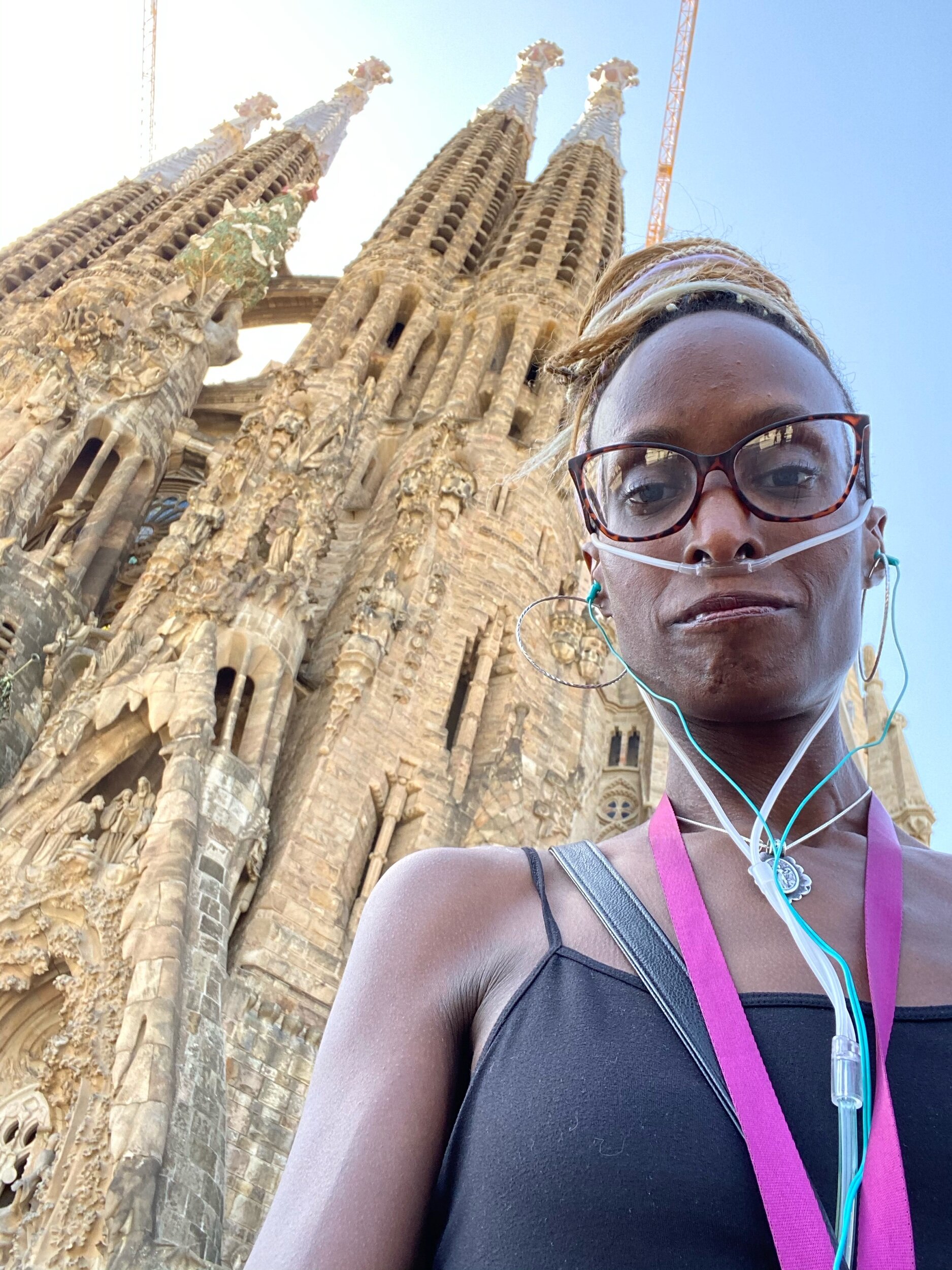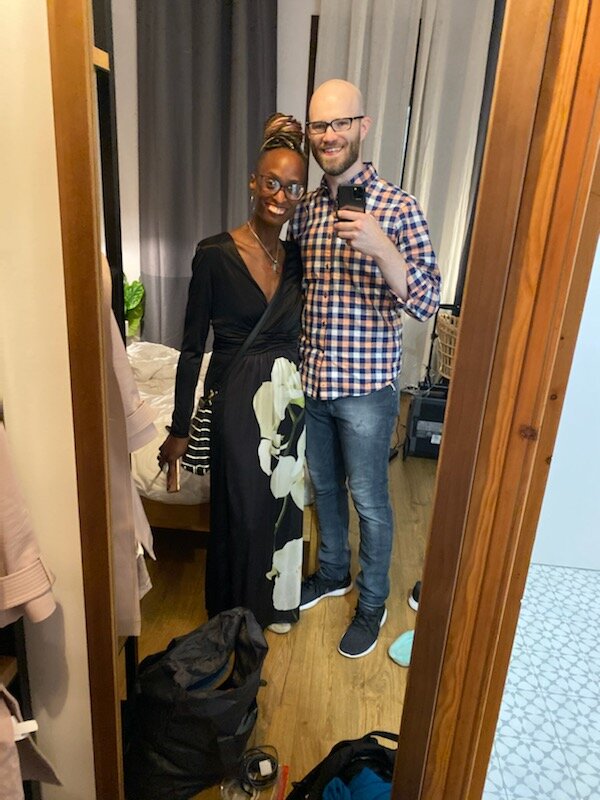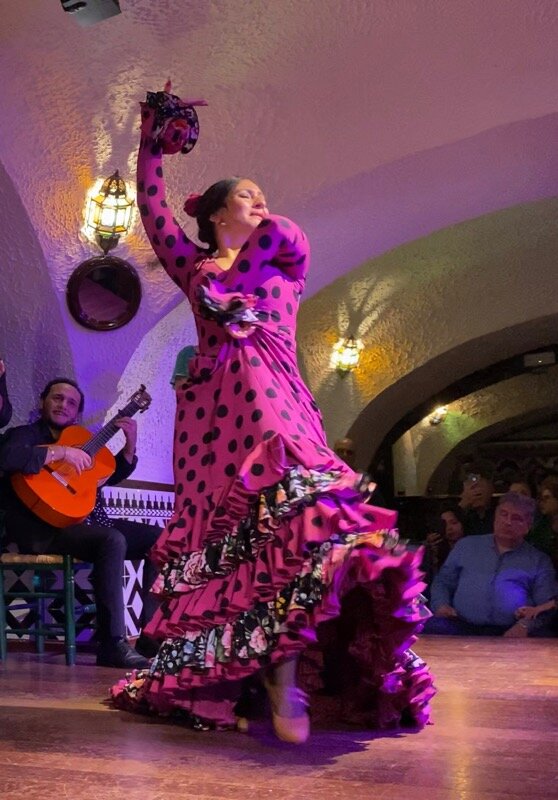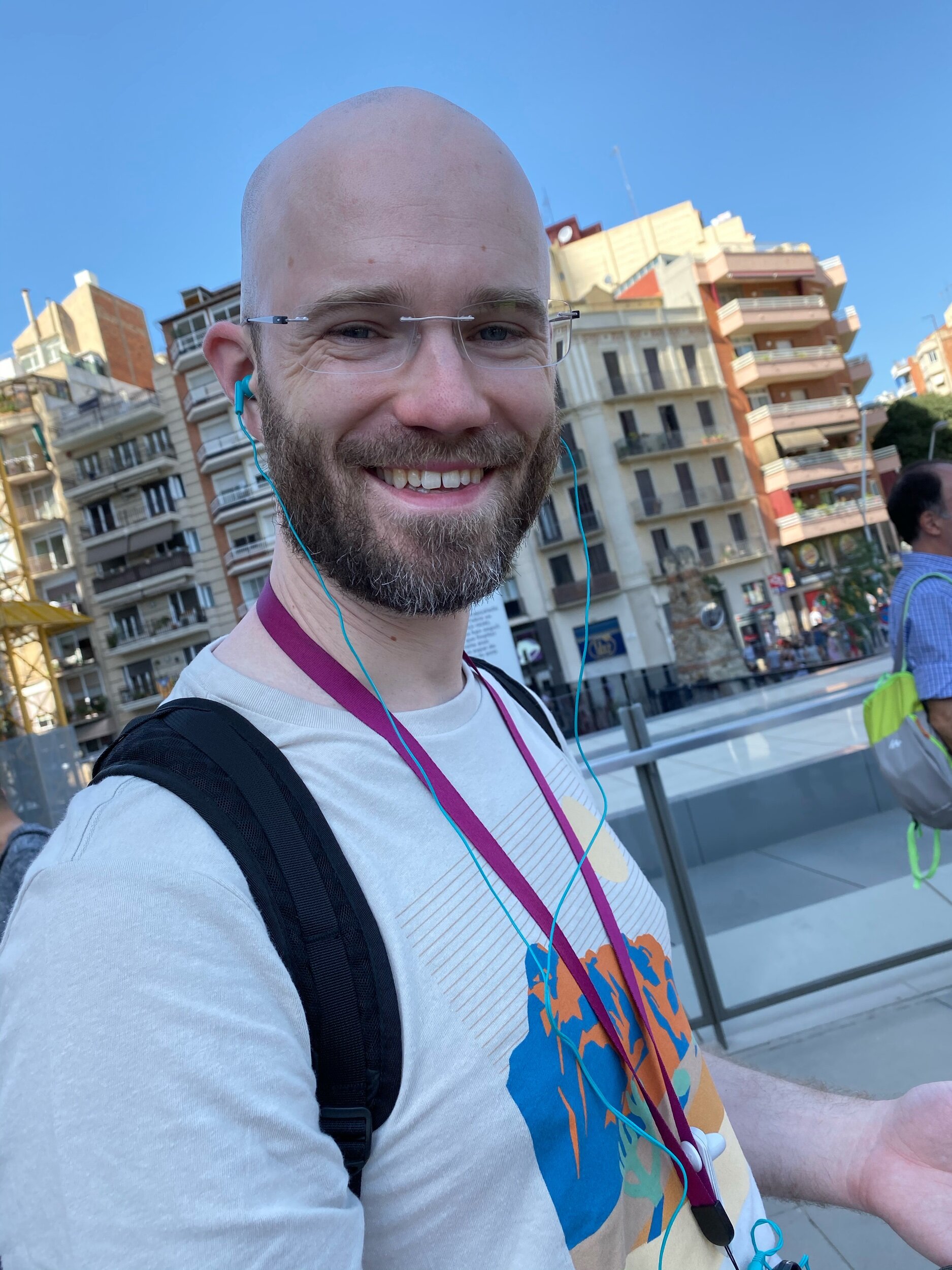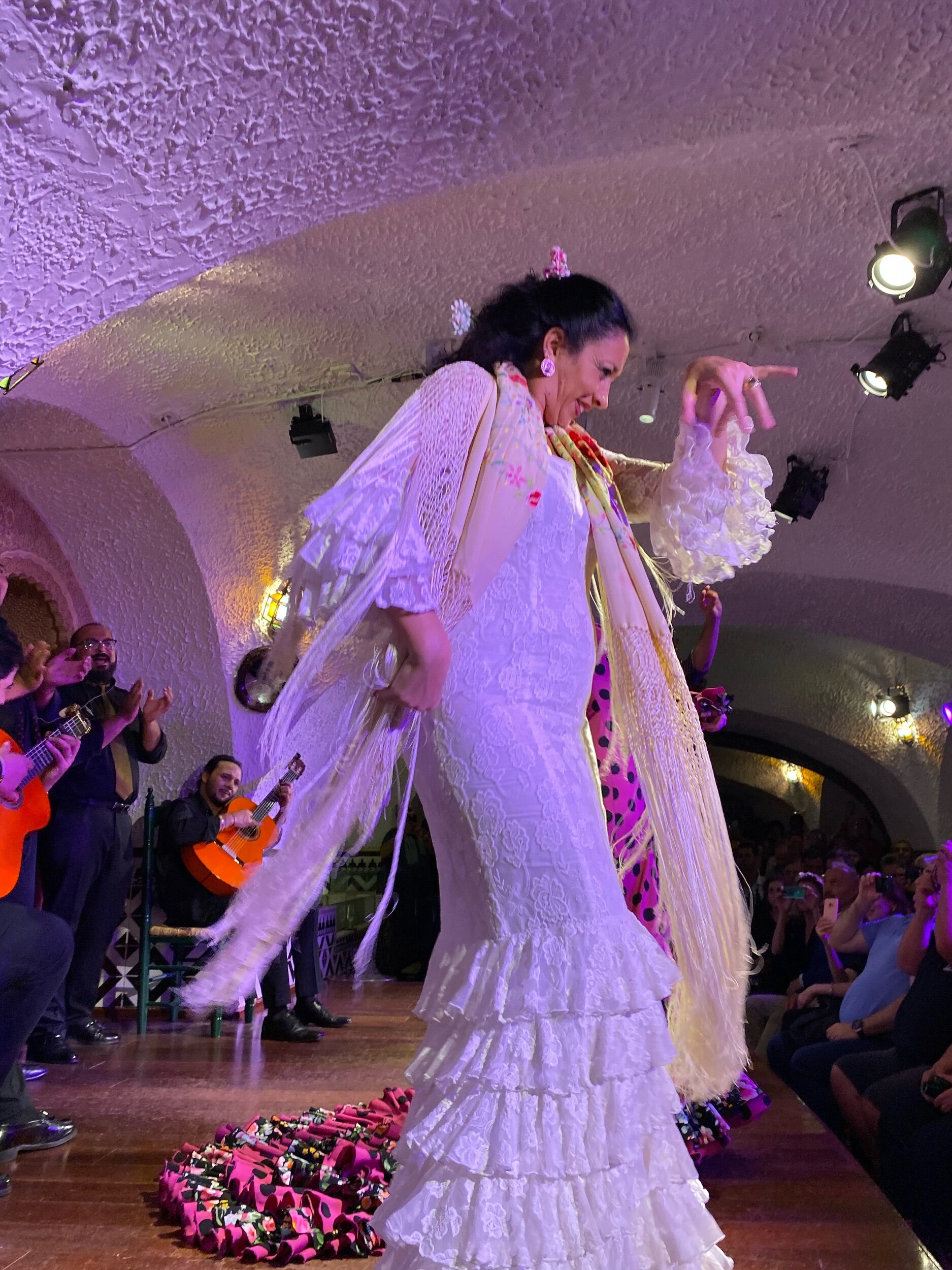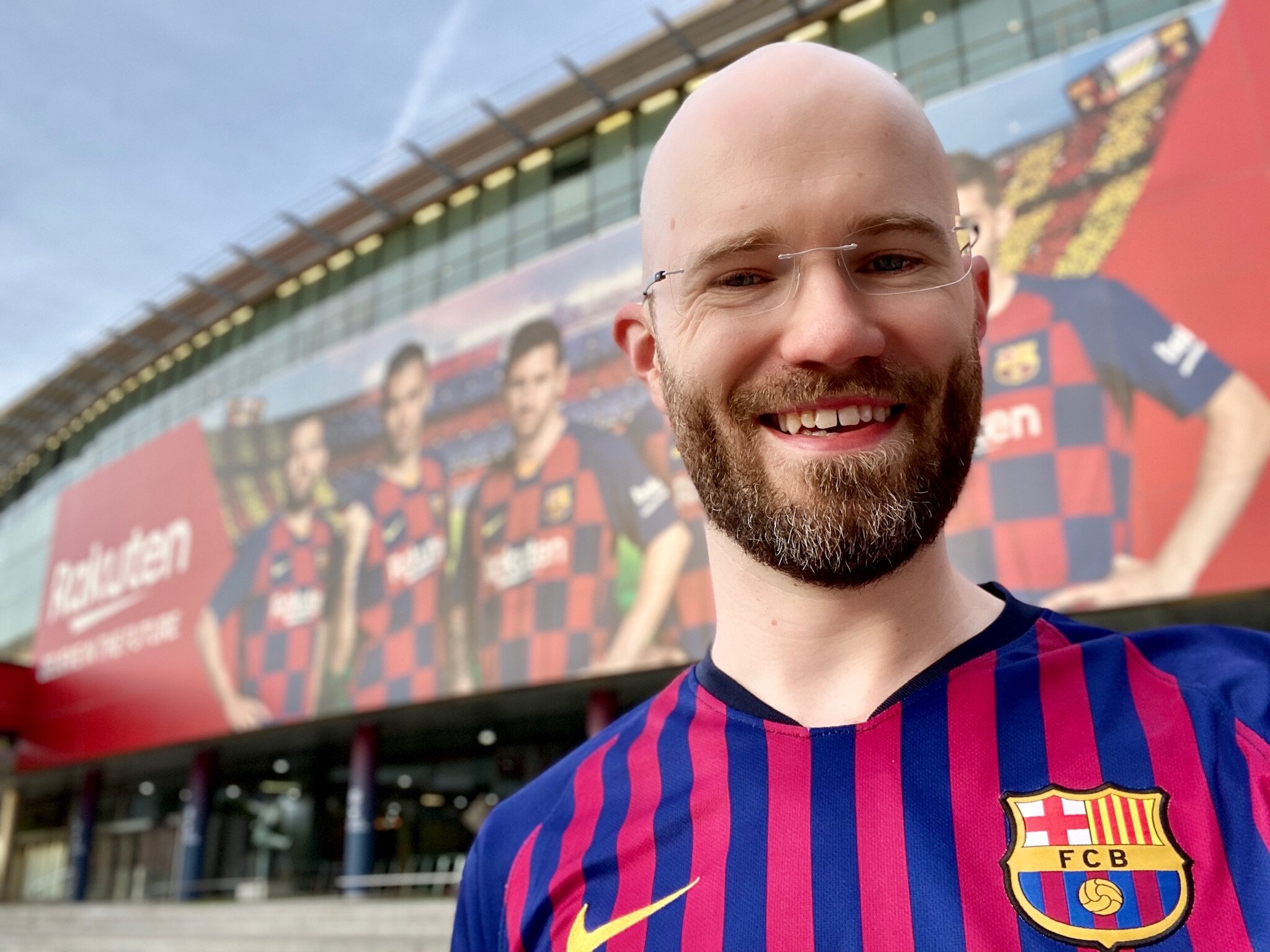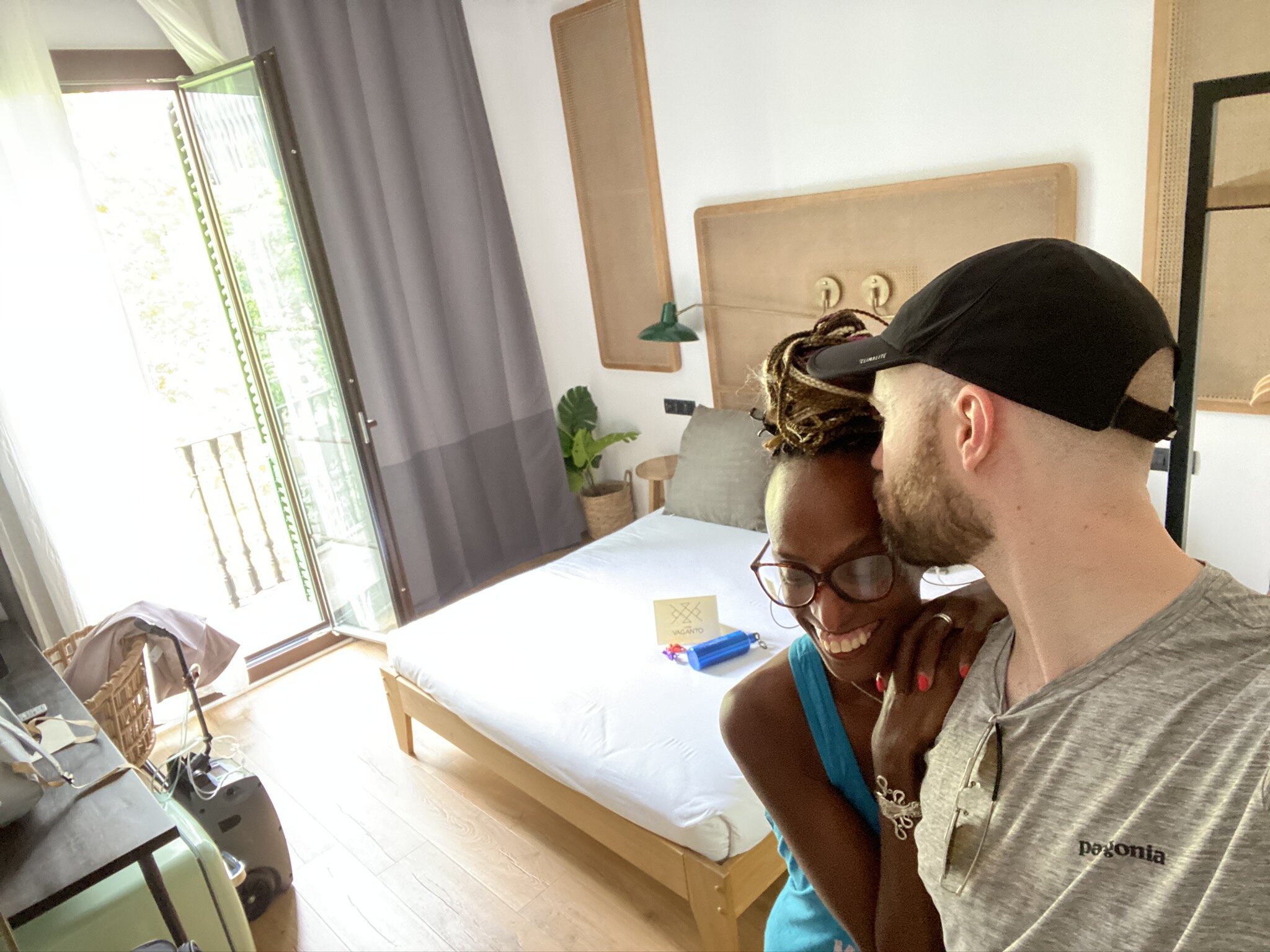For the first time in over 15 years—since my systemic scleroderma diagnosis—I am traveling out of the country. It’s an unbelievable gift to be able to do so. My husband has a conference in Europe and I am able to tag along; we are extending our trip on both sides by several days to go to a couple more places we’ve always wanted to visit—Barcelona, Paris, the region of Provence.
And yet I find my sick, disabled body at a unique place. As people living in broken bodies, chronically & terminally ill patients like me are encouraged relentlessly by others “not to claim the disease” (a phrase whose spirit I understand however it mystifies me as to why people think it is a useful thing to say). We, the sick and dying, are admonished to “remember we are more than the disease.” Doctors and physical therapists remind us at almost every visit of the “consequential importance of exercise” and of an “active lifestyle.”
And at the same time, we—the incurable and slowly dying—have necessarily made a certain peace with our mortality. We often live in the valleys of anxiety and depression at the reality of what is happening to us. We live in this ambivalence, which is aptly defined as equal forces pushing against each other: here, I experience it as the force of illness that wants to take my life, and the will to fashion a Life of Abundance on my own terms.
So you can imagine my anger, frustration and disbelief as my husband and I began organizing my oxygen for this 2 week trip overseas having been met with these realities:
My oxygen supplier (which is covered by my very good insurance) does not support overseas travel. That means they do not supply any supplemental equipment such as extra cannulas and batteries if it’s to support international travel. (Incidentally, you always need extras of both of these when you combine significant lung disease with any extended travel—even if it’s a day full of errands) .
Their reasoning is that if something happens to the machine (malfunctioning, etc) they have no support system set up internationally to help me. So they refer out to another company, which I’ll call Company B.
Company B does not, however, take anybody’s insurance ever. So to get the same level of equipment that I ALREADY HAVE AT HOME for my trip, it would cost $1075. This does NOT include the additional batteries I need, which are $50/week per battery. So that would be an additional $100 per battery for this trip. And I would need approximately 8 total batteries. If I heard the agent from Company B correctly when I called, the comparable POC (portable oxygen concentrator) comes with 3 batteries. So I’d need at least 5 more. (Fun fact: when traveling with oxygen, you must have a “permission slip” signed by your doctors and approved by the airlines. Every time. And each airline is different with what their slip looks like and the types of hoops you must jump through to prove you can fly; another post for another day. For all of the slips, the number of batteries you need is indicated on the form. I’ve never had an airline agent actually check for my batteries but they always ask to make sure I have the required amount; so if you’re thinking it’s possible to cheat somehow, it isn’t.) If you’re keeping track, that’s a minimum of approximately $1575 to take my “medicine” with me on this trip. Yes, it’s definitely medicine with a prescription.
My husband reached out to support groups, I reached out to my primary care doctor, and my lung doctor…all to see what other options were available. I am not the only person trying to live a Life while on oxygen, I thought, as we began our search (and I still believe that). What I got back in response was an apologetic, this is just how it is. Unfortunately, most elderly patients aren’t traveling overseas. [Side note: I am 40 years old. I’ve been sick since I was 22. I know I’m not the only youngish person with this illness. And I suspect there are elderly people who want to and would travel more if there were not so many discouraging roadblocks in the way.]
I am grateful to have a support system that consists of people who will tirelessly speak up for me. I’m grateful to be in a mental space in spite of the steady push of depression and anxiety that allows me to speak up for myself. And yet I’m extremely troubled at this gap in care for people like me.
It is intellectually dishonest to expect patients to push and push and push for Life and then mindlessly block their attempts to do so. No, every patient’s idea of living their best life isn’t a trip overseas. But I’ve even been criticized in my former clinic for even traveling domestically (to see my twin sister and her family, for taking family vacations—very “normal” things) compared to other patients; that permission slip I mentioned? I remember one time calling with about 2 weeks notice to have it signed and emailed back to me so I could get it to the airlines in plenty of time. I fill it out; the staff (not even my doctor) has to sign. The 3rd or so trip in maybe the span of a year, I’d called to get a status update on my paperwork. The staff member said something indicating that I needed it “really soon” as if 2 weeks’ notice wasn’t nearly enough. I asked her how long patients usually gave. She said, “Oh, you know. Three months or so.” She went on to say that grandparents usually aren’t traveling that much and can plan out ahead. GREAT. But I’m not a grandparent, and the experience of disease and how we live in it is NOT a monolith. What is the point in in comparing me (or any patient) to another? I have not gone against any guidelines for this paperwork or caused any undue hardship. What exactly are you trying to accomplish, ma’am? Either we encourage LIFE or we do not, understanding that that definition will manifest differently for each patient according to age, temperament and their personal goals related to their disease severity. And I will say it again: SOME GRANDPARENTS 👏🏾MAY 👏🏾WANT 👏🏾TO 👏🏾CLIMB 👏🏾A 👏🏾MOTHER 👏🏾BLEEPING 👏🏾MOUNTAIN. If they have the strength to do it, who gon’ check them, boo????
It is my hope that by beginning to document these things, it will be among the first steps in changing what is considered the normal experience of often numbered days in the lives of patients like me and for the people who love us. And you know, I know I’ll be ok. Which is not saying I’m going to be cured or I’m going to get better. I can’t know that. But I am assured that whatever happens I have the chutzpah to speak up for myself and to tirelessly advocate for myself; that reactive personality comes in handy. 🙃And when I am overwrought and overwhelmed, my “people” are right there advocating for me. But I have lived too long in a body that’s both black and female to not be painfully aware that there are many people who walk roads like this alone. So, I’m raising my voice for all of us. So that one day, when a young dying woman chooses A Life in spite of her diagnosis and decides she will join her friends on that safari in Botswana in spite of her oxygen requirement, her nurse doesn’t have to regrettably tell her that Medicare, followed quickly by other insurance companies, has said that “traveling is a luxury so oxygen will only be covered domestically.” (Yes, Medicare actually said that.) While I don’t have Medicare, there are many, people who rely on its services. And their decision in this matter has caused other private insurance companies to follow suit. That matters.
I address these final words to Medicare and friends: You erroneously call travel a luxury. I would like to correct you. Yes, travel is many things: a gift, a blessing, a thing of value. (Actually, you all might be surprised at how skilled dying people are at recognizing and appreciating these things in life. Maybe you should talk to more of us? 🤷🏾♀️) But this I know for sure: being able to breathe, being able to choose a Life that matters—these are 2 things that are not luxuries. They are rights.
Travel Uniform for European Adventure 2019! 🧳





